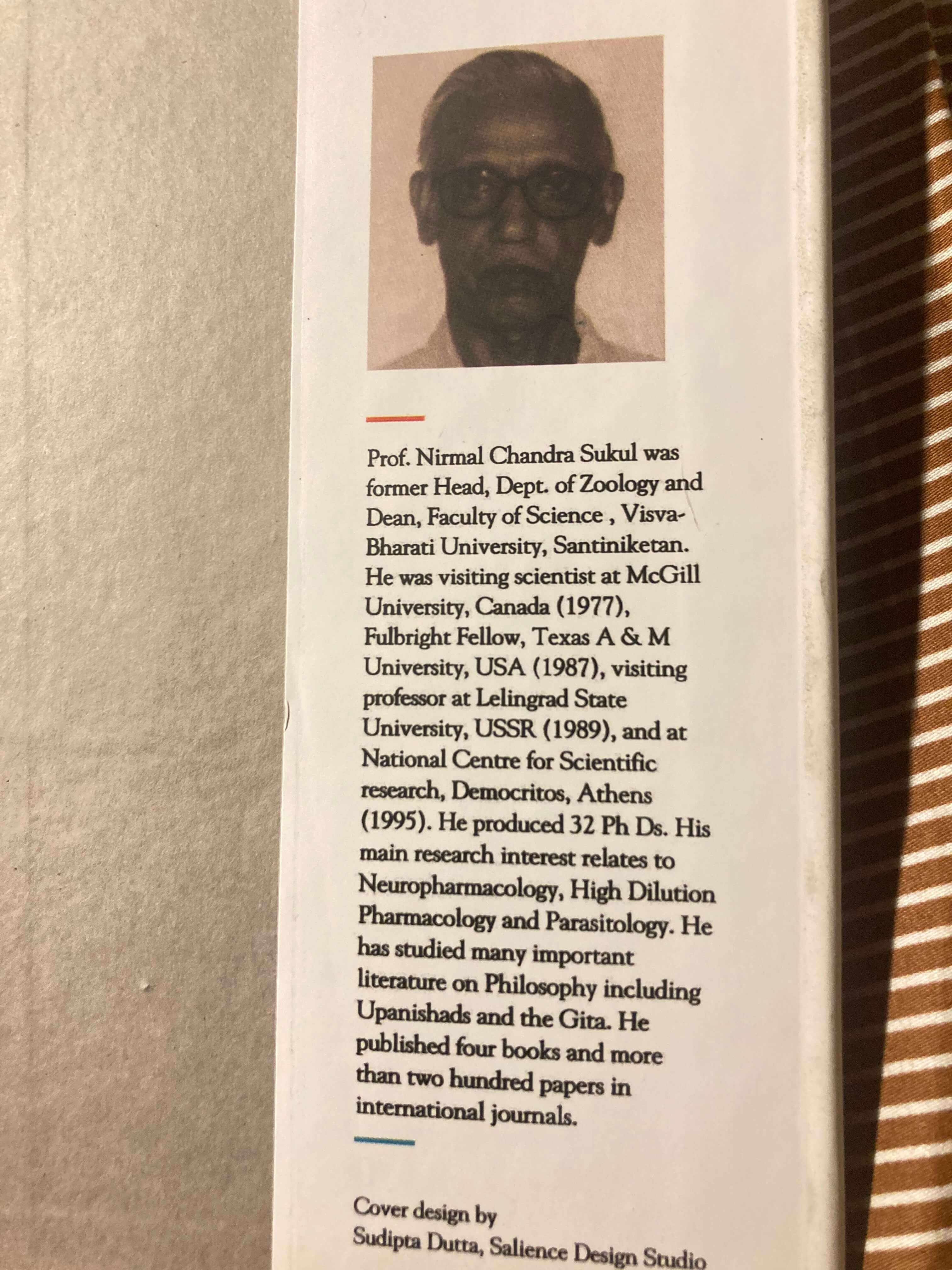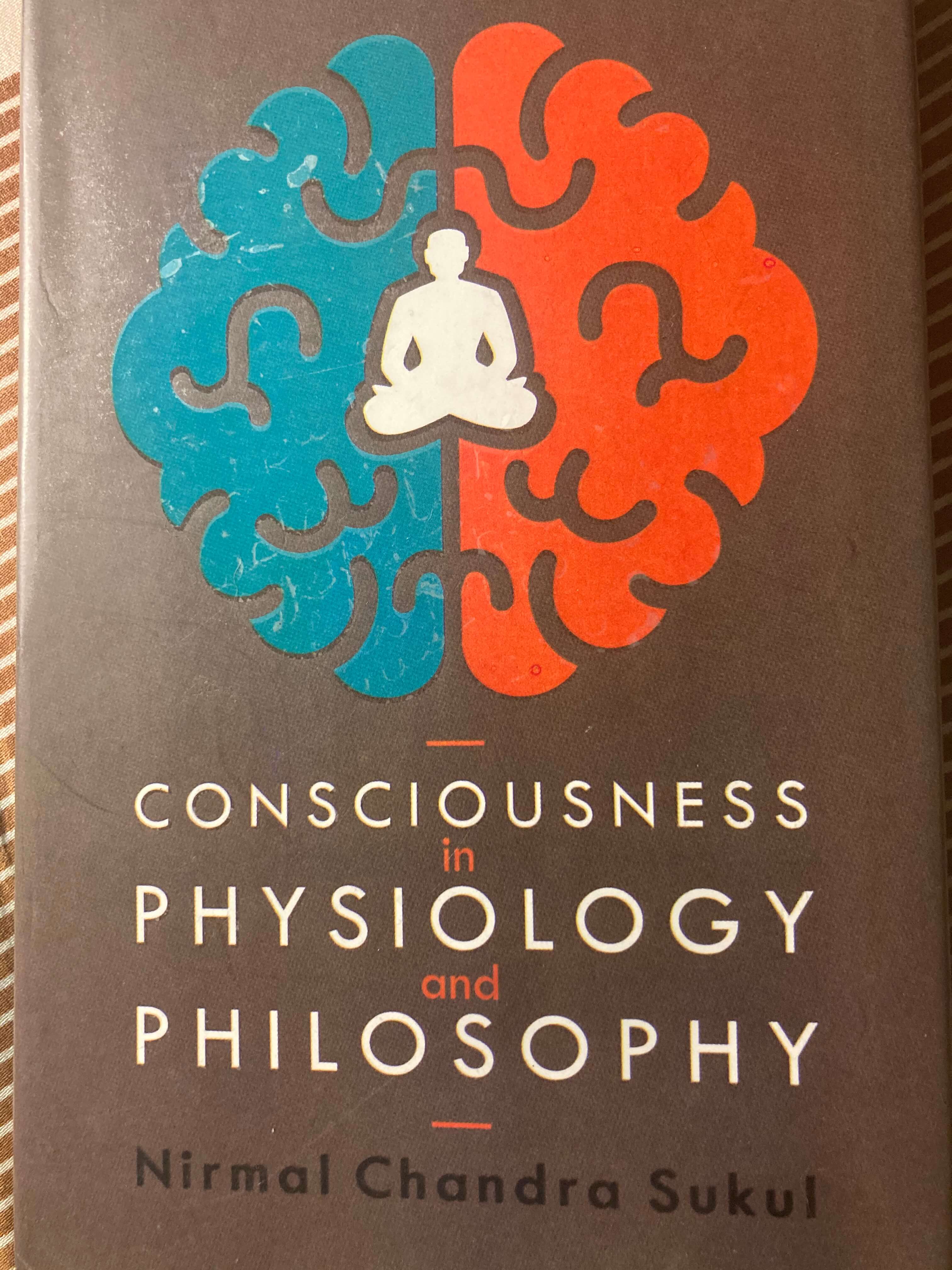Reading Time: 3 minutes
Amanita reviews the book, Consciousness in Physiology and Philosophy, by Prof Nirmal Chandra Sukul. An exclusive for Different Truths.

The pandemic-hit year 2020 was a huge blow to our collective egos, as it showed us our vulnerability despite the progress we have made as a species. The grinding wheels of life and commerce suddenly coming to a near standstill, all for the sake of a virus, shook up our false sense of imperviousness. Many of us resorted to our hobbies to cope with the enormity of strangeness the times were reaping. Almost like a part of this coping strategy, I let books happen to me.
I found it a pleasant surprise that I picked up Consciousness in Physiology and Philosophy, written by Prof. Nirmal Chandra Sukul.
To me, this book appeared to be an attempt to be the missing link between the human brain and the spiritual gains that many aspire towards, though it is not overtly told, or even hinted at. But some books lend themselves to such interpretations and to me it came across as one. One-third of this book describes the functions of the central nervous system of the human body. The labelled illustrations add to the text, making the point that so much of the understanding of consciousness is embedded in the neurological study.
By stressing on topics like plasticity of brains, meditation, and metabolism, the author wishes to impart methods to increase the effectiveness of this organ in day-to-day operations.
By stressing on topics like plasticity of brains, meditation, and metabolism, the author wishes to impart methods to increase the effectiveness of this organ in day-to-day operations. The following pages build the concept of ‘self’ referring to neuroscience as well as philosophical studies.
Each of the chapters have relevant subtexts.
Describing briefly how the memory is encoded, sensitised, the author gives us pointers on how the brain can function optimally especially during stress.

The chapter on memory drew my attention. Describing briefly how the memory is encoded, sensitised, the author gives us pointers on how the brain can function optimally especially during stress.
Three pages of references for this book speak of the detailed research undertaken by the author, but at no point does it read like a drab academic discourse on the subject.
All good books evoke an interest in the minds of the reader to know more on the topics discussed therein, this is no exception. Throwing light upon the integral functioning of body and mind, this book lightly guides the readers – especially those uninitiated into physiology and philosophy, to the mysterious terrains of consciousness.
With this book, one can faintly draw a parallel to the genre of self-help titles where methods are discussed on improving one’s life with changes at a cognitive level.

With this book, one can faintly draw a parallel to the genre of self-help titles where methods are discussed on improving one’s life with changes at a cognitive level. But the similarities end there. While most of those run-of-the-mill kinds of books mention methods that appear short-cuts to reach the goal of some kind of transformation in life; the discussion on the awareness of consciousness done here is an in-depth understanding of the subject. It most certainly conveys to the reader the message that the inner journey is a continuous one and the knowledge of “self” will only equip us for a deeper quest of human minds.
At a personal level, reading this book for me was somewhat like visiting a tranquil place to pause and reflect upon this chanced upon action called living through concepts that was not unfamiliar to me but looked new in their deliverance here.
Photos sourced by the reviewer

















